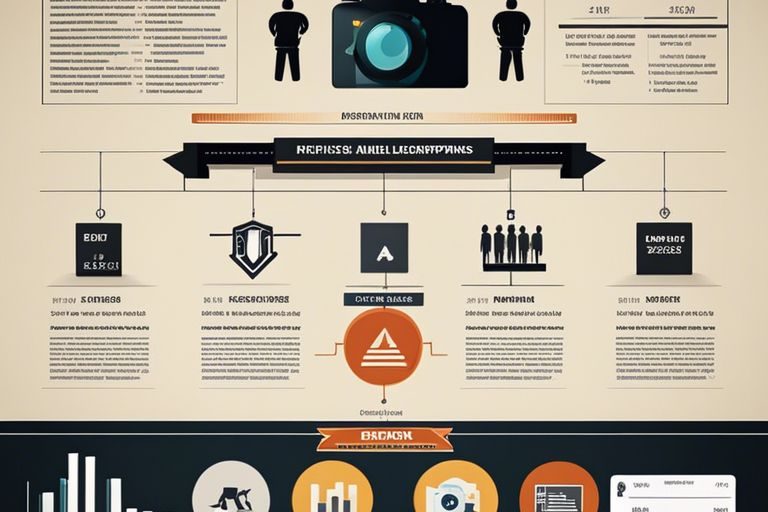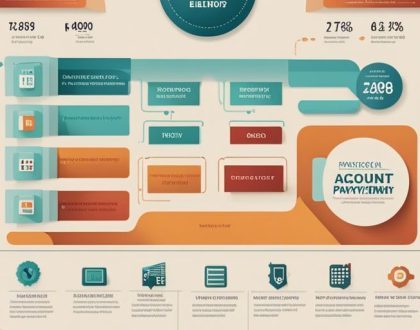Understanding License Categories and Classes

You may be familiar with the process of obtaining a driver’s license, but do you truly understand the different categories and classes available? It is crucial to grasp the distinctions as they dictate what type of vehicles you are legally allowed to operate on the road. License categories refer to the different kinds of vehicles or appliances covered by your license, while classes indicate the level of expertise required to operate said vehicles. Not knowing these distinctions could not only result in legal consequences but also lead to dangerous situations on the road.
Overview of Licensing Systems
The Role of Licensing in Regulation
One necessary aspect of many industries is the requirement for licenses to ensure that individuals or businesses meet specific standards to operate legally. Licensing serves as a way to regulate professions and activities, ensuring that those practicing have the necessary skills and qualifications to perform their duties safely and effectively. Regulating authorities set these standards to protect the public from harm and maintain the integrity of the industry.
Different Licensing Systems Across Regions
Across different regions, licensing systems can vary significantly in terms of their requirements and rigor. Some regions may have strict licensing processes with extensive educational and experience prerequisites, while others may have more lenient regulations. It is crucial for individuals and businesses to understand the specific licensing requirements in their region to ensure compliance with the law and industry standards.
One notable example of variations in licensing systems is seen in healthcare professions. For instance, the requirements for becoming a licensed healthcare provider can differ greatly between countries, with some requiring extensive education and training, while others have more accessible paths to licensure. Understanding these differences is necessary for professionals looking to work in multiple countries or regions.
Personal Vehicle Licenses
Standard Car Licenses
With a standard car license, individuals are permitted to operate passenger vehicles, vans, and small trucks for personal use. To obtain a standard car license, an individual typically needs to pass a written test to demonstrate knowledge of traffic laws and signs, as well as a driving test to showcase their practical skills behind the wheel. It is crucial for drivers to adhere to speed limits, traffic signals, and other road rules to maintain safety on the road.
Motorcycle Licenses
Requirements for obtaining a motorcycle license may vary depending on the country or state, but generally involve a written test on motorcycle safety and a skills test to demonstrate competency in operating a motorcycle. Riding a motorcycle requires a different set of skills compared to driving a car, as motorcyclists must be aware of their surroundings and be extra cautious due to their vulnerability in case of accidents. Wearing proper safety gear, such as helmets and protective clothing, is important for all motorcycle riders to mitigate the risk of injury.
Licenses for personal vehicles come with a great deal of responsibility. It is imperative for drivers to stay informed about any updates in traffic laws and regulations to ensure the safety of themselves and others on the road.
Commercial Vehicle Licenses
Once again, understanding license categories and classes is crucial for operating commercial vehicles legally and safely. Commercial vehicle licenses are required for individuals who wish to drive vehicles for business purposes. There are different classes of commercial vehicle licenses, each allowing drivers to operate specific types of vehicles.
Heavy Goods Vehicles (HGV) Licenses
Commercial Heavy Goods Vehicles (HGV) licenses are necessary for individuals who wish to drive large trucks for transporting goods. The licensing requirements for HGV licenses typically involve additional training and testing to ensure drivers can safely operate these heavy vehicles on the roads. It is important to obtain the appropriate HGV license class based on the weight and size of the vehicle you intend to drive.
Passenger Carrying Vehicle (PCV) Licenses
Process Commercial Passenger Carrying Vehicle (PCV) licenses are necessary for individuals who want to drive buses, coaches, or other vehicles designed to carry passengers. Similar to HGV licenses, PCV licenses also have different classes based on the size and capacity of the vehicle. The process for obtaining a PCV license may involve specialized training and tests to ensure drivers can safely transport passengers.
Weight When applying for a PCV license, it is crucial to consider the weight and capacity of the vehicle you intend to drive. The safety of passengers is of utmost importance, and obtaining the correct PCV license class ensures that drivers are equipped to handle the responsibilities that come with operating passenger-carrying vehicles.
Special Vehicle Licenses
Agricultural and Forestry Vehicles
To ensure the safe operation of agricultural and forestry vehicles on public roads, special licensing requirements are in place. These vehicles are crucial for the production of food and resources, but they also can pose unique hazards due to their size and limited maneuverability. Operators of these vehicles must undergo specialized training to obtain the necessary license, which includes understanding the specific rules and regulations governing the use of these vehicles on public roads.
Construction and Engineering Vehicles
On top of the general license requirements, operators of construction and engineering vehicles must obtain additional licensing to operate these specialized vehicles on public roads. These vehicles are vital for the development of infrastructure and buildings, but they can be highly hazardous if not operated correctly. Licensing for these vehicles involves training on the specific functions and safety protocols required for operating them in a variety of construction environments.
Vehicle operators must be well-versed in the maintenance and safety checks required for these specialized vehicles to minimize the risk of accidents and ensure the safety of both the operator and others on the road. Understanding the distinct categories and classes of licenses for these special vehicles is crucial for maintaining safety standards and preventing potential accidents or hazards associated with their operation.
International Licensing
Not all countries have the same requirements when it comes to driver’s licenses. If you plan on driving in a foreign country, it’s important to understand the different international licensing regulations to ensure you are driving legally and safely.
International Driving Permits (IDP)
With the increase in international travel, obtaining an International Driving Permit (IDP) has become vital for many people. An IDP translates your driver’s license information into multiple languages, making it easier for authorities in other countries to interpret your credentials. It is important to note that an IDP is not a stand-alone document but must be carried alongside your valid driver’s license.
Reciprocity and License Exchange Agreements
With globalization on the rise, several countries have established reciprocity and license exchange agreements to simplify the process for foreign drivers. These agreements allow individuals from certain countries to exchange their driver’s license for a local one or drive with their foreign license for a specified period. This can be convenient for travelers or expatriates, but it’s crucial to understand the specific terms and conditions of each agreement to avoid any legal issues.
License reciprocity agreements vary from country to country, so it’s vital to research the regulations in your destination country well in advance. Driving with the wrong type of license can result in hefty fines, vehicle impoundment, or even legal consequences.
Age and Health Requirements
Minimum Age Limits for Different Classes
Many different license categories have specific age requirements based on the class of vehicle being operated. It is crucial to adhere to these age limits to ensure the safety of both the driver and others on the road. For example, the minimum age for obtaining a commercial driver’s license (CDL) is typically 21 years old, while the minimum age for a motorcycle license may be as young as 16 in some states.
Medical Fitness to Drive
An individual’s health plays a critical role in their ability to drive safely. Medical fitness requirements are in place to ensure that drivers do not pose a risk to themselves or others on the road due to health issues. These requirements may include vision screenings, medical exams, and assessments of conditions such as epilepsy or diabetes to determine if a driver is fit to operate a vehicle.
It is important for drivers to stay up to date on their medical evaluations and disclose any health conditions that may impact their ability to drive safely.
Summing up
Considering all points discussed, it is vital for individuals to have a clear understanding of license categories and classes when it comes to driving. Different classes of licenses allow for different types of vehicles to be operated legally, and it is important to know the specific requirements and restrictions that apply to each category. By understanding these distinctions, drivers can ensure that they are operating their vehicles legally and safely.
Accurate knowledge of license categories and classes also helps individuals make informed decisions about the type of vehicles they can drive, as well as the necessary training and testing requirements. This understanding can prevent potential legal issues and ensure compliance with driving regulations. By familiarizing oneself with the nuances of license classifications, drivers can navigate the roads with confidence and responsibility.
FAQs:
What is the difference between license categories and classes?
License categories refer to the types of vehicles covered, while classes indicate the required expertise levels.
What are the requirements for obtaining a standard car license?
Typically, it involves passing written and driving tests demonstrating knowledge of traffic laws and practical skills.
What distinguishes motorcycle licenses from standard car licenses?
Motorcycle licenses require specific tests on motorcycle safety due to the different skills needed for riding.
What are Heavy Goods Vehicle (HGV) licenses, and what do they entail?
HGV licenses are for driving large trucks and usually require additional training and testing.
What is an International Driving Permit (IDP), and why is it important?
An IDP translates your driver’s license into multiple languages, facilitating legal driving abroad.
Recommended Posts

Mobile Payments in iGaming
July 26, 2024

Understanding Casino License Revocation
July 24, 2024

Payment System in iGaming
July 23, 2024




